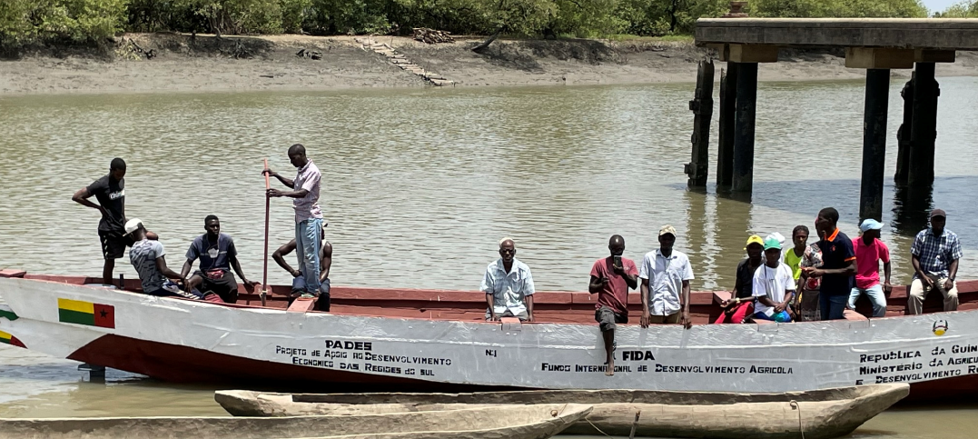Environment and natural resource management ranked top IFAD-supported interventions - IOE
Rome, 22 November 2022 – Environment and natural resource management (ENRM) is the criterion that exhibits the highest percentage of positive ratings among IFAD-supported activities between 2011 – 2020, closely followed by innovation and relevance. The Independent Office of Evaluation of IFAD (IOE) presented this finding in the first edition of its new flagship publication, titled ‘2022 Annual Report on the Independent Evaluation of IFAD’, published on 22 November 2022.
Since 2003, IOE has produced an Annual Report on Results and Impact of IFAD Operations. On the occasion of its twentieth anniversary, the report has been re-pitched and renamed as the Annual Report on the Independent Evaluation of IFAD (ARIE), reflecting upgraded contents and a broader scope. The ARIE is in line with the 2021 Evaluation Policy, which emphasizes the creation of an overall evaluation culture and reinforces the importance of learning and collaboration. The focus of the ARIE is on substantive findings and on adding value to the existing evaluations.
Within the 2022 ARIE, ENRM and climate change adaptation are the only two criteria that exhibited a constant increase over the past decade. The positive performance of ENRM and climate change may be linked, at least in part, to IFAD institutional efforts, including the preparation of relevant strategies, guidance tools, the mobilization of climate financing and the establishment of a dedicated unit to mainstream climate responses.
On the opposite end of the spectrum, the ARIE notes that performance continued to be lowest against efficiency, government performance and sustainability. With regard to government performance, while there is no single cause for the decline of government performance in the projects that reached completion point between 2013 and 2018, a recent evaluation synthesis observed that IFAD-funded projects were increasingly implemented by ministries of agriculture and project design had become more complex, with value chain development objectives being added to primary production. Overall, the ministries did not have sufficient capacity, resources and expertise to manage these projects. IFAD country presence was important to support country programme performance. However, on its own, it was not sufficient to improve the performance of operations, which depended on other factors as well. IFAD country presence was strained when operations were reaching into remote locations and in contexts with weak local government capacity.
Among the report’s other salient findings, recent evaluations noted that community-driven development operations performed even better than others in fragile, remote and marginal contexts. In addition, the joint evaluation conducted by IOE and the evaluation offices of FAO and WFP on the collaboration between Rome-based agencies (RBAs) determined that such combined efforts have enhanced the sharing of knowledge, lessons and good practices in the areas of gender, nutrition and emergency response. However, in other development areas, RBAs have made limited progress in reducing overlap, competition and duplication.
Looking ahead, the ARIE highlights areas for further growth of IFAD-supported activities. With regard to climate change, the report notes that there are still gaps related to climate financing. In particular, there is a need for a shared vision between IFAD management and staff to integrate climate change adaptation in IFAD interventions; improvements in the design of climate change adaptation interventions and non-lending activities; and a results framework to track and allow analysis of the performance of interventions.
The 2022 ARIE draws on evaluations of 284 projects completed between 2011 and 2020, as well as 49 country strategy and programme evaluations conducted between 2011 and 2021. The report compares findings across evaluations, analyses rating trends according to the established evaluation criteria, and formulates a number of key messages.
For further information, please contact Alexander Voccia [here]
RESOURCES
- To access the ‘2022 Annual Report on the Independent Evaluation of IFAD’ and the full repository of Annual Report on Results and Impact, please click here.
CONTACTS

